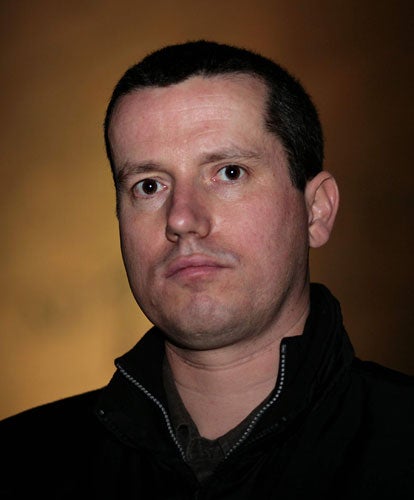UK’s maverick diplomat Carne Ross takes on a new job – as Syrian rebels’ voice to the UN

Your support helps us to tell the story
From reproductive rights to climate change to Big Tech, The Independent is on the ground when the story is developing. Whether it's investigating the financials of Elon Musk's pro-Trump PAC or producing our latest documentary, 'The A Word', which shines a light on the American women fighting for reproductive rights, we know how important it is to parse out the facts from the messaging.
At such a critical moment in US history, we need reporters on the ground. Your donation allows us to keep sending journalists to speak to both sides of the story.
The Independent is trusted by Americans across the entire political spectrum. And unlike many other quality news outlets, we choose not to lock Americans out of our reporting and analysis with paywalls. We believe quality journalism should be available to everyone, paid for by those who can afford it.
Your support makes all the difference.A former British diplomat who resigned over the Iraq war has been hired by Syrian rebels who want his advice on how to raise their voice on the world stage.
Carne Ross, who left his post after accusing the Government of failing to consider alternatives to military action in Iraq, confirmed tonight that the advisory group he founded, Independent Diplomat, had been asked to assist the National Coalition for Syrian Revolutionary and Opposition Forces.
“Independent Diplomat works with countries and political groups that are marginalised and cut out of the diplomatic discussion for whatever reason. The basis of our philosophy is legitimate representatives of the people need to be included in the diplomatic discussion. The coalition falls squarely within that definition,” he said.
Violence continues to escalate in Syria’s civil war, with the death toll standing at an estimated 70,000. Despite two years of fighting, Bashar al-Assad remains in power, with international governments failing to reach a consensus on how much to intervene.
But the coalition has been torn apart by resignations and infighting. There have been fears that the rebellion is being hijacked by extremists with one group, the al-Nusra Front, recently pledging allegiance to al-Qa’ida, a position the coalition immediately distanced itself from.
While the opposition has been recognised by the West, it has failed to get the military and humanitarian support it wants, and the United Nations remains deadlocked on the crisis.
Mr Ross has previously worked to gain attention for marginalised causes in Kosovo, Somaliland and Western Sahara. He has also worked with the Occupy Wall Street movement. He said today that his main role would be to advise the coalition on how to be heard in the United States, particularly at the United Nations in New York, where his office is based.
“The main focus will be at the UN and the continued discussions about Syria,” he said. “Naturally they [the opposition] are very frustrated at the state of diplomacy over Syria.”
Mr Ross was the UK’s Middle East expert at the UN Security Council but resigned from the Foreign Office in 2004 after giving then-secret evidence to the Butler Review. He testified that the UK and US intelligence had not assessed Iraq’s weapons of mass destruction to be a threat, directly contradicting the Government’s justification for war.
Recently he said that it was time for international governments to seek new ways of intervening in Syria through non-violent methods such as sanctions, interfering with the regime’s electronic system or disrupting the army’s chain of supply.
Today, he insisted that those were strictly personal views and he would not be advising the rebels on internal matters, simply on how to get their message across in diplomatic circles. “It all goes back to our philosophy.” he said. “It is their voice that matters, not mine.”
Join our commenting forum
Join thought-provoking conversations, follow other Independent readers and see their replies
Comments